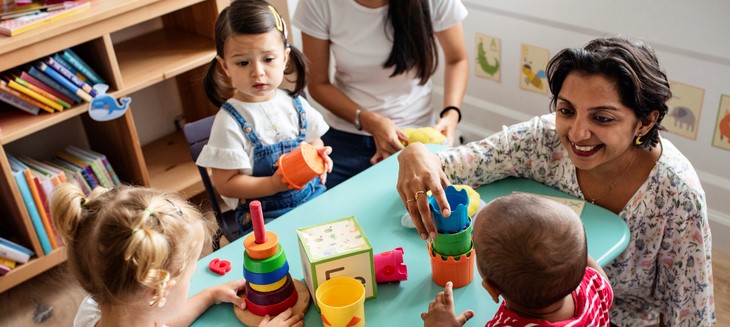What is Occupational Therapy?
Occupational therapists are regulated healthcare professionals that work with children of all ages and abilities. Occupational therapy supports children with engaging in activities that they need to do (including – eating, hygiene tasks, going to school, etc.) and want to do (play, leisure activities, etc.). Both neurotypical and neurodivergent children can benefit from occupational therapy.
Occupational therapists can support children in the following areas:
- Fine motor skills: Movement and coordination of the hands, fingers, and wrists (grasp, hand strength, dexterity, object manipulation)
- Gross motor skills: Movement and coordination of the arms, legs, torso, and head (balance, coordination, crossing midline, motor planning)
- Sensory processing: Receiving and interpreting information from the different senses (sight, sound, touch, taste, smell, body awareness, balance/motion)
- Self-regulation: Identifying, processing, and responding to different emotions
- Visual perception: Receiving and processing visual information (visual discrimination, visual spatial relations, visual motor skills)
- Executive functioning: Cognitive skills and processes (attention, problem-solving, organization)
- Handwriting and pre-printing: Areas of written output (letter formation/sizing, spacing, pencil grasp, pre-printing development, handwriting accommodations)
- Activities of daily living: Self-care tasks (utensil use, dressing skills, toileting, hygiene tasks)
- Feeding: Processes and skills involved in eating (oral motor skills, sensitivity to food textures, food selectivity)
Our occupational therapists work in collaboration with our speech therapists and behavioural therapists to create unique programs that support each child with their specific needs.
What Does Occupational Therapy Involve?
Assessment: The occupational therapist will complete an assessment to evaluate your child’s current skills, abilities, and barriers to their participation. This will involve a formal assessment, observations of your child, and/or parent/caregiver interviews. Goals for occupational therapy sessions will be established based on the information gathered from the assessment.
Therapy Sessions: After the assessment, the occupational therapist will develop a therapy plan to support your child with their goals. Therapy sessions may involve:
- Activities or tasks designed to target specific skills
- Modifying your child’s environment or the way they complete difficult tasks to help them fully participate
- Parent/caregiver coaching on how to implement occupational therapy strategies at home
Therapy sessions will be one-to-one with an occupational therapist and are delivered in-centre or virtually. Parents/caregivers are encouraged to attend sessions to observe their child’s progress and learn strategies they can work on with their child at home.

Enhancing Abilities And Independence
Children with Autism Spectrum Disorder (ASD) often have a variety of unique needs, sometimes involving limited mobility, sensory issues and behavioural challenges. The Occupational Therapist implements strategies and recommends tools to modify their environment for success.
Occupational Therapy is a valuable resource in collaboration with Applied Behaviour Analysis (ABA) therapy. The Occupational Therapist works within the team of specialists to create a unique program to support each child with their specific needs. They can also help families with training and techniques that can be applied at home between sessions and provide advice to teaching professionals.
Coordination with on site ABA and SLP Services
Typically our Occupational therapists will work with your child individually each week and coordinate with the other services if required to ensure that goals are aligned. They will also work with the family to devise ways in which the child can work on these goals outside of the sessions too.





